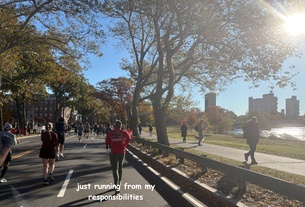By the end of the 1989 school year, The Crimson reported that only 1.8 percent of the 400 senior faculty were Black.
Minorities overall accounted for only 7 percent of the senior faculty. 8 percent of the tenured faculty were women.
The junior faculty displayed a slightly more diverse membership. Just over 12 percent of the junior faculty were minorities, and 27.7 percent were women. Even among undergraduates, no woman had ever served as a chair of the seven-year-old Undergraduate Council.
Some faculty members chose to challenge what they saw as a glass ceiling preventing them from entering the tenure track.
Barbara Bund Jackson ’66, for example, filed a suit alleging that the Harvard Business School had denied her tenure because she was a women. The U.S. Massachusetts District Court ruled against Jackson and she subsequently appealed the decision during September 1989.
According to court documents, HBS professor Gordon Donaldson originally testified that the Business School was hesitant to hire qualified women for prominent leadership positions.
“There’s a reluctance to accept women into certain leadership areas where traditionally they have not had such roles,” Donaldson testified. “I believe that business is one of those.”
The presiding judge eventually handed down an opinion that held that discrimination, while it may exist, was merely a reflection of pervasive stereotypes that the Court could do little to alter.
“Dean Donaldson’s statements, which the plaintiff portrays as evidence of discriminatory intent, are merely a recognition that the general culture’s stereotypes and prejudices undoubtedly influence, albeit indirectly, the composition of the Harvard Business School student body and faculty.”
Jackson, however, objected to the prejudice adopted by Business School administrators and faculty, saying that it made her feel out of place while on the tenure track at HBS.
“It was not comfortable,” she said. “You were very aware that this wasn’t the tradition.”
The lack of women and minorities on the faculty may have dissuaded some qualified scholars from pursuing tenure. Wesley J. Paul ’91, an Asian-American member of the Minority Student Alliance, recalled that phenomenon.
He had a “bright, well-spoken, and highly thought of” teaching assistant who had expressed interest in pursuing tenure, but seemed reluctant because she was an Asian-American woman.
“I think she came to some kind of a realization that, as an Asian-American woman, her likelihood of getting onto the tenure track for Harvard or some other well-known law school was pretty slim,” Paul said.
MARGINALIZED AT HARVARD


